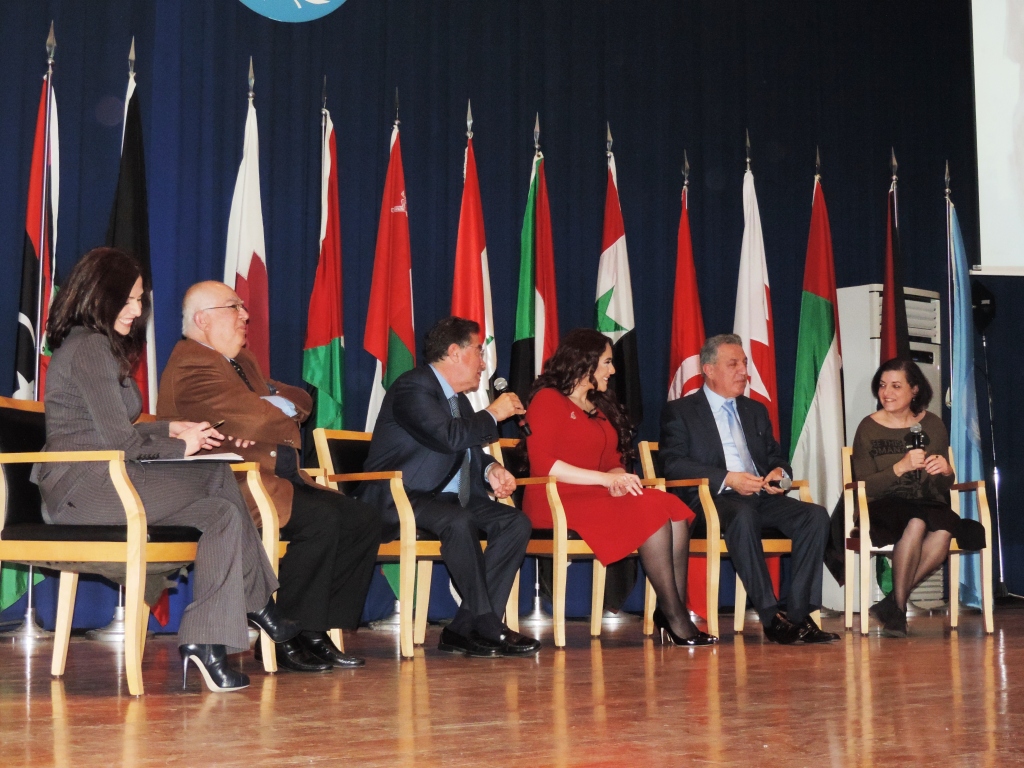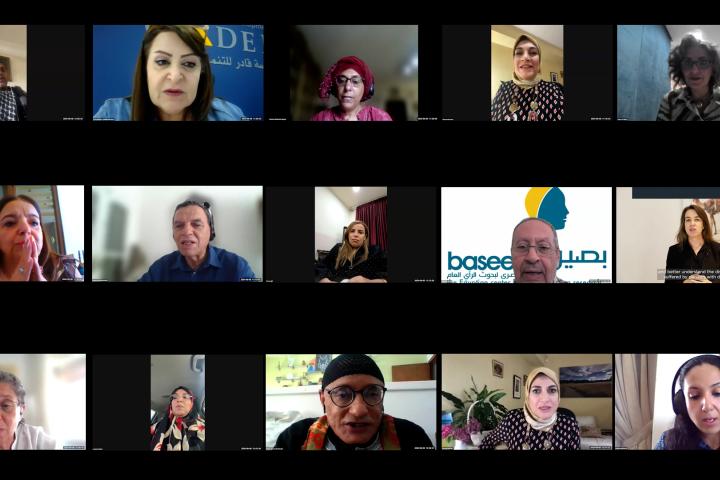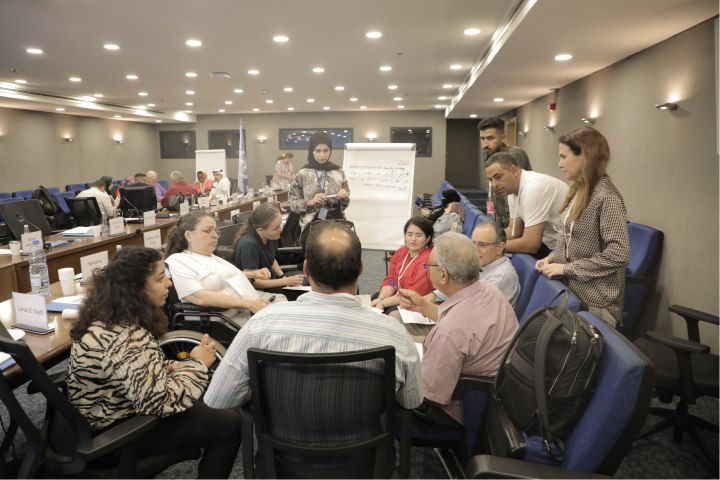On 20 February 2017, ESCWA marked World Day of Social Justice with particular emphasis on the role of culture and arts in achieving social justice, and with the participation of a host of officials, diplomats, artists, and media figures.
Opening remarks in the ceremony were delivered by Lebanese State Minister for Combating Corruption Nicolas Tueni and by Director of ESCWA Social Development Division Frederico Neto.
In his statement, Tueni said: “We have learnt that there is no equality or social justice without a socio-political philosophy adopted by a capable and fully aware authority that is keen on the interests of its people.”
“Social and international justice has become impossible to attain unless it is coupled by a protective force that shields its concepts against the tyranny of the unjust and the powerful. Justice needs the power of a fair authority. The rights and hopes of Arab populations will not take shape unless by the power of the Arab authority. The judeization of Jerusalem and zionization of Palestine give a clear example of the weakness of our peoples and the regression of the authority of our regimes,” he added. Tueni went on to say, “Wishful thinking will not solve our issues as an Arab nation, but we will require determination, steadfastness and successful endeavors. Social issues will only be solved through the implementation of social justice.”
Defining the concept of ‘social justice’, Tueni concluded that it is “giving each individual what he deserves, distributing financial gains throughout society, and satisfying basic needs equally. It is also equal opportunity, whereby each individual has a chance for social ascension.”
For his part, Neto said: “the global theme for the Day (conflict and peace) is particularly relevant to this region. Several countries in the region are embroiled in conflicts that have disrupted or destroyed the lives of many, and triggered the largest refugee crisis the world has seen since the World War II.”
He added: “without a robust rights-based approach to social justice, there can only be a selective application of the concept. Public participation is a must if we are to ensure that social justice is as universal as freedom. And, of course, reducing inequality is essential to achieving social justice.”
“While there are many stakeholders committed to achieving social justice, this effort cannot be relegated only to governments and international agencies. Artists also inspire us to work creatively and collaboratively with each other across various divides. Art can be a powerful vehicle for social change and is a creative medium to draw attention to and advocate for the cause of social justice,” Neto concluded by saying.
Lebanese TV anchor, journalist and Master of the Ceremony Joumana Nammour opened the commemoration, which featured a musical performance by Lebanese singer and musicologist Abeer Nehme. Lebanese director and actress Aida Sabra presented two theatrical sketches based on the day’s theme, and the audience also listened to a poem reading by famed Lebanese poet Shawki Bzeih.
On the sidelines of the event, a painting exhibition by Galerie Zaman was organized featuring Arab artists, namely: Riad Neama (Iraq), Youssef Nehme (Lebanon), Moghni Seif (Syria), Imad D. Mohamad (Syria), Ali Abbas (Iraq), Rabii Saf (Lebanon), Rabee Al Boainy (Syria), Simon Mhanna (Lebanon), Hazim Akil (Syria), Fadi Karlitch (Lebanon), Rima Mansour (Lebanon), Ahmad Kleige (Syria), Brouz Ali (Syria), Rania Kerbaj (Lebanon), Abdul Rahman Al Saedy (Iraq), and Saade George (Lebanon).
The artistic performances were followed by a panel discussion entitled: “Social Justice through Arts,” with the participation of the artists in addition to Minister Tueni and Director of Galerie Zaman Moussa Kobeissi. Frederico Neto then disbursed certificates of appreciation to participants in the event, who were invited to the opening of the painting exhibition.
News
24 Feb 2017
Beirut, Lebanon
ESCWA Marks World Day of Social Justice




